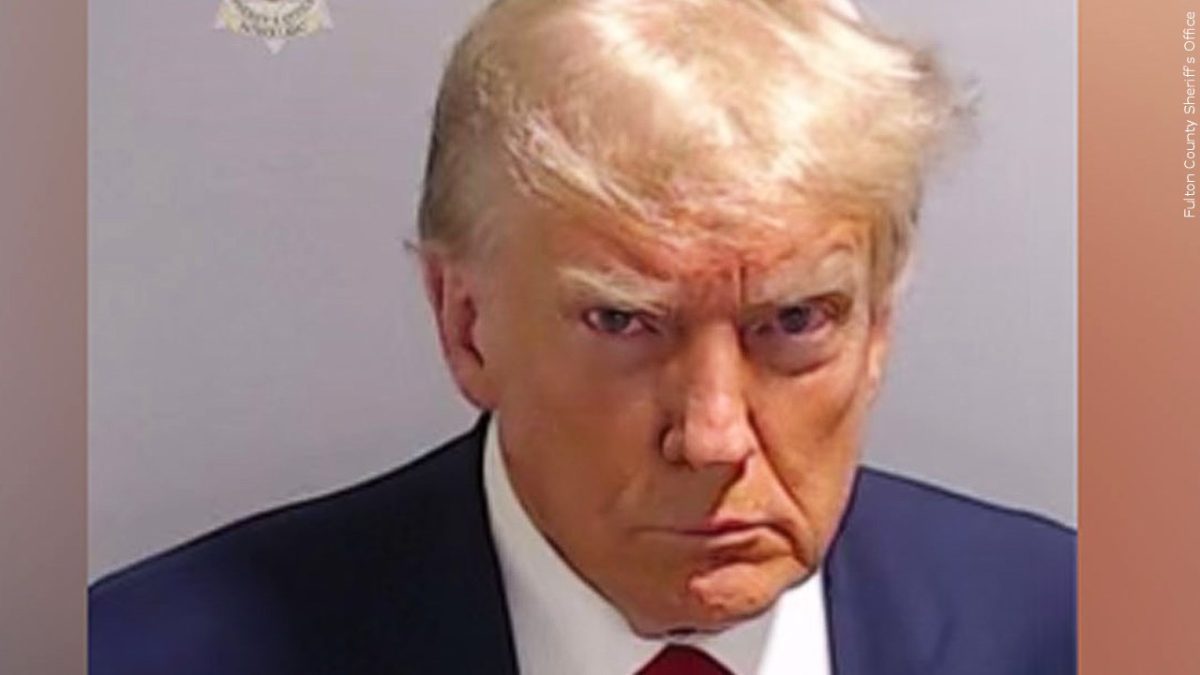Former US President Donald Trump Gets Indicted
President Donald Trump
Drew Oldham
It has been over two and a half weeks since Donald Trump turned himself in at the Fulton County Jail.
Trump and 18 others were indicted in relation to alleged RICO violations in Fulton County due to their efforts to reverse the 2020 election results in Georgia.
This is not Trump’s first surrender to the authorities either. He has turned himself into both local and federal authorities three other times this year in light of various criminal charges brought against him.
According to CNN, in April, Trump was booked in New York on state charges related to a violation of a non-disclosure agreement with Stormy Daniels. Two months later, he turned himself into a federal courthouse in Miami, Florida, concerning his supposed mishandling of classified documents seized from his residence in nearby Mar-a-Lago. Earlier this month, he was placed under arrest in the nation’s capital on charges related to his efforts to overturn the 2020 election results.
GC political science professor Benjamin Clark feels that the various charges against the former President fall on a continuum of varying levels of legitimacy, yielding different conviction likelihoods.
“I think that the New York charges concerning falsifying business records are very questionable,” Clark said. “However, the case concerning the Mar-a-Lago documents is clear-cut from a legal standpoint, and the federal prosecutors in this case were left with little choice but to proceed with charging him.”
He went on to say that the charges in the other two cases fell more in the middle of these two.
Trump is hardly the first to raise questions about the legitimacy of an election that did not play out in his favor. Democrats were quite skeptical of the 2000 election in which Al Gore lost, Hilary Clinton referred to Trump as an “illegitimate” president and Stacey Abrams claimed Brian Kemp was unfairly elected in the 2018 Georgia gubernatorial election, as she claimed that voters were suppressed in some parts of the state.
“Donald Trump makes these claims of fraud in the 2020 election, and actively drove the narrative around election meddling in the absence of any specific evidence that the 2020 election was fraudulent,” Clark said.
The prevalence and continued advancement of claims that the results of the 2020 election were fraudulent by Trump and his supporters have raised visceral questions about the integrity of our elections. Without faith in our elections, many Americans fall into voting nihilism, where they feel that their vote does not matter, which leads to an eroding desire and commitment to democracy and democratic elections.
GC rhetoric professor and Director of Forensics Nathan Bedsole is extremely concerned about the impacts of this cynical view on the 2020 election on voters’ minds concerning their ability to concentrate on the real problems with voting in the American system, especially given that the claims of fraud have not been validated with any objective evidence thus far.
“The impact this conversation about the ‘stolen election’ in Georgia has is that it taps into a very real feeling many people have in this country: that their vote does not matter,” Bedsole said. “Trump’s ability to tap into this feeling at a national level is effective but distracts Americans from the real issue: that many voters need to be re-enfranchised to counteract the pervasive gerrymandering that has taken the power of their vote away so that they may actually impact elections they participate in.”
Convicting Trump and his codefendants under the RICO statutes, typically used to prosecute people accused of being members of an organized-crime ring, will require proof beyond a reasonable doubt that he committed at least two felonies specified in the act.
An anonymous GC professor believes the charges brought against the former President in Fulton County are politically motivated, baseless and difficult to prove under the RICO statutes. He is skeptical of the political ideology of the prosecutor, who is openly liberal, and that Fulton County was selected as the location due to the jury likely being overwhelmingly liberal due to the county’s generally overwhelming left lean.
“Politically motivated charges, such as these, damage the value we should all hold dear, which is that the rule of law should be impartially administrated and ethically implemented,” said an anonymous GC professor. “The use of the law for political means subverts the principle of objectivity and impartiality that should exist in the law.”
Trump is expected to stand trial for three of the cases early next year, and a few of his codefendants will begin to be prosecuted in October. If convicted before the election, he will be ineligible to serve as president if he were to win the 2024 election.


